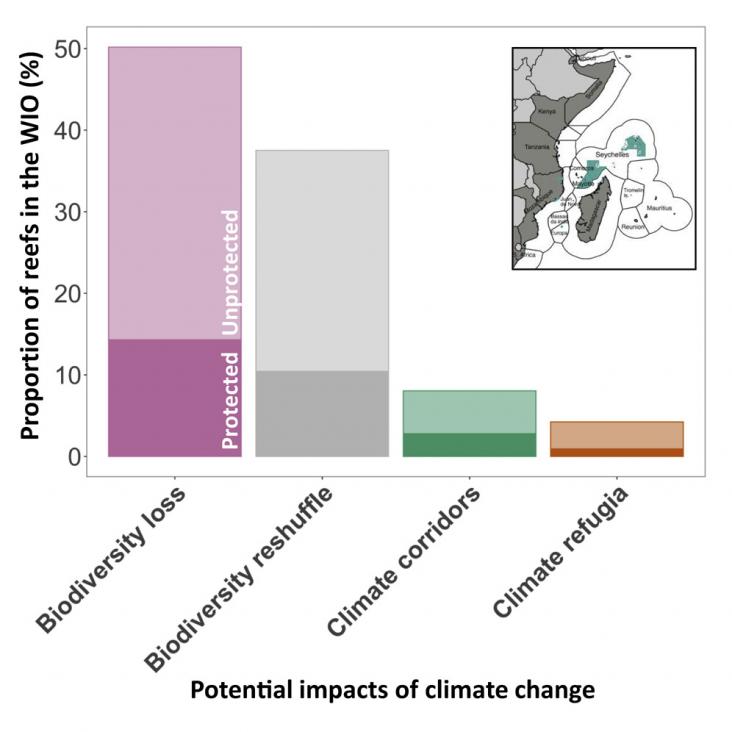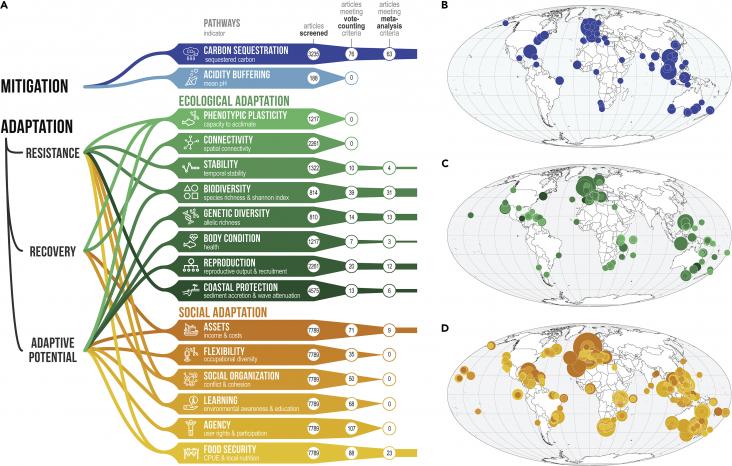Study of hydrochemical and geochemical characteristics and solute fluxes in Upper Ganga Basin, India
Journal of Asian Earth Sciences: X, Volume 8, 1 December 2022
This article supports SDGs 13 and 14 because it confirmed the significant correlation observed between flux and river discharge in Bhagirathi, a turbulent Himalayan river. Himalayan rivers are considered the most sensitive of all the ecosystems to the impact of climate change.

This article examines the extent to which Marine Protected Area can fit for purpose in Western Indian Ocean, in the context of global warming.
Bay of Bengal (BoB) has immense significance with respect to ecological diversity and natural resources. Studies on microbial profiling and their functional significance at sediment level of BoB remain poorly represented. Herein, we describe the microbial diversity and metabolic potentials of BOB deep-sea sediment samples by subjecting the metagenomes to Nanopore sequencing.
Elsevier,
Water, Land, and Forest Susceptibility and Sustainability: Geospatial Approaches and Modeling, Volume 1, 2023, Pages 87-119
This content aligns with SDG Goal 6 and SDG Goal 14 by evaluating river pollution using AI to estimate dispersion coefficient.
Elsevier,
Water, Land, and Forest Susceptibility and Sustainability: Geospatial Approaches and Modeling, Volume 1, 2023, Pages 155-169
This content aligns with SDG Goal 6 and SDG Goal 14 by providing a detailed review on the role of GIS and remote sensing for monitoring the quality of water and management and water body remediation.
Elsevier,
Shunlin Liang and Jindi Wang; Advanced Remote Sensing (Second Edition), 2020, Pages 765-787
This chapter contributes to SDG 6 and 9 by providing satellite techniques to monitor water storage in the Earth's cycle.
Elsevier,
Comparative Biochemistry and Physiology -Part A : Molecular and Integrative Physiology, Volume 272, October 2022
This article advances SDG # 14 by looking at the impact that environmental changes and anthropogenic threats are having on marine mammals through the assessment of different stress biomarkers in certain body tissues of chronically affected and bycaught striped dolphins.

This article reports the significant climate mitigation and adaptation efforts via marine conservation activities.
How serious is the pollution in the Mediterranean area by mircoplastics? This review paper analyzes the abundance, the marine contamination, and accumulation of mircoplastics in the Mediterranean basin. Also the impacts on the economic and environmental sector, and effects by country on general health and marine life.
This article introduces the concept of blue economy and how such a framework can help to improve sustainable development of oceans.
